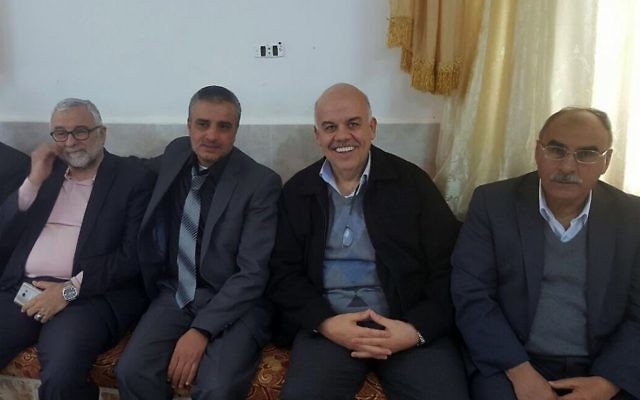Schoolgirls’ murderer hailed as hero
The seven girls that he murdered would be approaching their mid-30s now, several of them would probably be raising children. But as Ahmed Daqamseh walked to freedom this week, he showed no regret – and received a hero’s welcome.

JERUSALEM – The seven girls that he murdered would be approaching their mid-30s now, several of them would probably be raising children. But as Ahmed Daqamseh walked to freedom this week, he showed no regret – and received a hero’s welcome.
He killed the Israeli girls on the Israel-Jordan border 20 years ago, when he was a Jordanian soldier and is thought to have been furious about the then-recent signing of the Israeli-Jordanian peace deal. Jordan imprisoned him and its ruler of the day, King Hussein, paid condolence calls.
But as Daqamseh was released on Sunday, there were many hailing him as a hero, including in his village in northern Jordan where banners greeted him. Amman ordered his release for night-time to minimise celebrations, but there were still scenes of chanting, singing and honking of horns.
Even in Jordan’s parliament, there was praise for him. “The release of this hero has cheered us,” said the politician Saleh Armouti according to local media, reasoning: “Israel has committed crimes against many Jordanians that were never accounted for.”
Speaking to journalists, Daqamseh said Israelis are “human garbage”, who were “vomited into our midst by the world’s nations”.
The “garbage” must “be removed whether by burning or burying”, he said.
He also insisted that “there is no country called Israel” and that the idea of resolving the Israeli-Palestinian conflict through a two-state solution and the idea of normalised relations between Jordan and Israel, are “lies”.
Miri Me’iri, whose daughter Ya’ara was just 13 when she was murdered, told Israeli television that she felt “no anger, only pain” as he was released. It felt like being “punched in the stomach”, Me’iri said.
But some Israeli politicians felt anger as well as pain. Likud’s Oren Hazan said, “If he is calling for the murder of additional Israelis, this constitutes a threat to the public, which should be dealt with by Jordan itself.”
NATHAN JEFFAY

comments